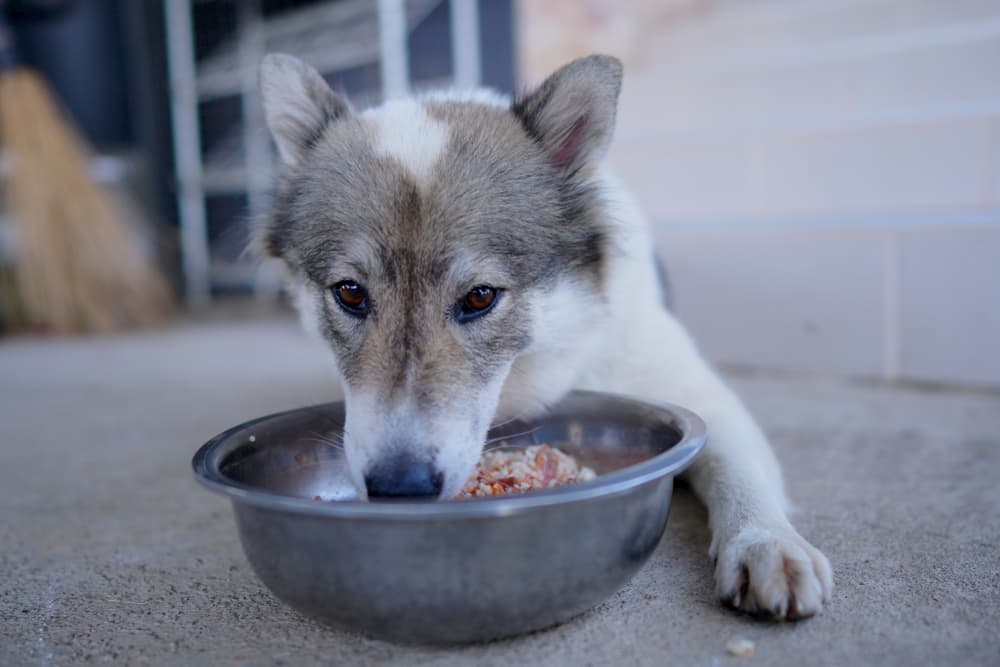Nutritional Yeast for Dogs: Benefits and Uses

The nutritional yeast market is growing steadily at a pace that’s expected to continue until at least 2029, according to an analysis by Future Market Insights. This growth is fueled by a growing demand for nutritious plant-based protein options. Nutritional yeast is high in fiber and packed with health-promoting vitamins and minerals, making it a desirable choice for health-conscious consumers.
But what about nutritional yeast for dogs? Can these potential benefits translate to our canine companions?
We asked veterinary experts to weigh in on the advantages and caveats of nutritional yeast products for dogs. As a reminder, any conversation about supplements should begin with your trusted veterinarian.
What is Nutritional Yeast?

Yeast is a tiny, single-celled organism classified as a fungus. Of the approximate 1,500 current species of yeast, one of the most extensively studied is Saccharomyces cerevisiae, widely used in food and beverage production. The most notable forms of the S. cerevisiae species are baker’s yeast, the ingredient that causes bread to rise; and brewer’s yeast, which plays an important role in beer fermentation (1).
Another important type of yeast is nutritional yeast (AKA nooch), sold as supplements, food additives, meat replacers, and seasonings. One way vegans and vegetarians use nutritional yeast is as a substitute for cheese, says Dr. Joe Bartges, professor of medicine and nutrition at the College of Veterinary Medicine, at the University of Georgia in Athens. “It has a nutty or cheesy kind of flavor. We put it on our popcorn.”
In nature, S. cerevisiae is found on grapes and other fruits (2). Food and supplement manufacturers harvest it by feeding yeast a sugar carbohydrate like sugar cane or beet sugar. It’s then heated—where it becomes deactivated—then washed, dried, and packaged (3).
Nutritional yeast is a complete protein (it contains adequate amounts of essential amino acids) that contains glutathione (4), an antioxidant that protect against diseases caused by free radical damage, like cancer and heart disease. It’s also high in fiber, and contains vitamin powerhouses like riboflavin, thiamine, and B-12, and minerals like calcium and potassium (5). It’s important to note that nutritional content varies, depending on whether the product has been fortified, a practice that varies by manufacturer.
Additionally, one human study showed nutritional yeast to be useful in affecting immune system response, reducing inflammation, and treating diseases associated with diarrhea (6).
Is Nutritional Yeast Good for Dogs?

Studies showing the benefits of nutritional yeast for dogs are minimal, but there are a few ways it can potentially be useful.
Provides Added Nutritional Content
The main reason for pet parents giving dogs a nutritional yeast product is for its protein and vitamin B content, says Dr. Lindsey Bullen, a board-certified veterinary nutritionist with Veterinary Specialty Hospital of the Carolinas. “However, if a pet is on a commercial diet formulated to meet nutrient standards set forth by AAFCO (The Association of American Feed Control Officials), the pet should be receiving all essential nutrients needed to live and thrive,” she says.
Nutritional yeast are often used for vitamin B deficiency in cases where nutrients aren’t being absorbed properly due to a gastrointestinal disorder, says Bullen. “However, nutritional yeast supplements contain small amounts of each vitamin, necessitating large quantities of supplementation,” she explains. “Additionally, if the pet does have underlying GI disease, there are more effective ways to administer b-vitamins (for example, injections).”
Additionally, experts say that because nutritional yeast (and brewer’s yeast) is inactive, it doesn’t have the same benefits of products containing live yeasts and is not considered a probiotic.
Improves the Taste of Dog Food

Nutritional yeast for dogs can be used as a flavor enhancer to encourage animals to eat more, says Dr. Jessica Romine, a veterinary internal medicine specialist at BluePearl Specialty and Emergency Pet Hospital in Detroit, Michigan. “This is from the glutamic acid. You may recognize this from its salt form, MSG, sometimes used in human cooking.”
In a study of adult female Beagles, researchers sought to test, in part, the palatability of s. cerevisiae as a dietary supplement. Dogs fed the diet containing nutritional yeast consumed their food at a higher rate (a ratio of 1.9:1) than the dogs fed the control diet (7).
Aids in Intestinal Health
Nutritional yeast may reduce fecal E. coli counts, which can improve intestinal health and overall improvement in immune function, says Dr. Lisa Pinn McFaddin, medical director at Independent Hill Veterinary Clinic in Manassas, Virginia.
How to Give Nutritional Yeast to Dogs

Products containing nutritional yeast are widely available, formulated for both humans and pets. How do you determine which is most appropriate for your dog?
Pet parents may be directed to use nutritional yeast meant for humans in their dog’s diet, but it’s important to discuss this addition with a veterinarian. Human supplements aren’t made with pets in mind, says Bullen. “I would have a product evaluated by a veterinarian or nutritionist to ensure safety and bioavailability before giving it to a pet.”
Quality control within the supplements industry is another issue. “There is no standardization and so different products will have different amounts of vitamins, minerals, and trace elements,” adds Bartges.
Nutritional yeast for pets is also available in supplement form, typically as chewable tablets or powder that can be added to dog food.
Because formulations vary by product and manufacturer and some contain extra ingredients such as garlic that can be harmful to dogs, it’s best to check with your dog’s veterinarian for dosing recommendations.
Nutritional Yeast Side Effects for Dogs

Nutritional yeast is generally safe, provided it’s purchased from a reliable company, experts say. “As nutritional yeast is primarily B vitamins, and B vitamins are safe with minimal toxicity, it would likely be safe unless it is fortified with other things,” says Bartges.
There are some factors to be aware of, however.
Current Health Conditions
“As with any potentially ‘live’ supplement, caution should be shown with immunocompromised pets or pets with gastrointestinal bleeding,” says Bullen. Dogs can also be allergic to yeast, so they should be monitored for signs of intolerance, adds Romine.
Also, be sure the product you give your dog doesn’t interact with any medications, reminds Bullen. “Always have owners consult with their primary veterinarian before feeding nutritional yeast.”
Gastrointestinal Upset
Large pets need a higher dose of nutritional yeast for any nutritional benefit to take effect, which may lead to gastrointestinal upset, says Bullen. If you see signs of GI problems, discontinue the use of any yeast-based supplements and check in with your veterinarian.
Potential Weight Gain

Depending on the product, yeast supplements can be high in calories, says Bullen. “The amount would need to be calculated into the pet’s daily caloric intake if the pet is on a weight loss plan or is prone to obesity.”
Potential Toxicity if Given in High Doses
For example, some products contain garlic, says McFaddin. “In low doses it can be safe for dogs, but in high doses can be toxic.”
If taken in very high doses, nutritional yeast can cause flushing, feelings of being hot, and rapid breathing, says Romine. “Theoretically, if it was fed as more than just a sprinkle/topper, it could add too much protein and/or phosphorus to the diet of a dog with chronic kidney disease.”
It’s important to note that nutritional yeast is not the same as baker’s yeast, which Romine says is an important difference. “While baking and brewer’s yeast are known to sometimes support bacteria that can lead to mycotoxin growth, nutritional yeasts typically don’t have any more risk than other supplements.”
Where to Buy Nutritional Yeast for Dogs

Nutritional yeast for human consumption is most commonly sold as granules or flakes. Products are sold through a wide variety of vendors including health food stores, grocers, and online retailers.
Quality control is an important issue to consider when choosing any supplement, including nutritional yeast. “The United States FDA does not regulate supplements, so they do not have to be subjected to controls for safety, efficacy, and purity,” says Bullen. “Some companies have little to no quality control to ensure their products match their label.”
With such variations in quality, how do you choose a reliable product? Start by doing a thorough check of the company’s history, offers Bullen.
“Always check for supporting research on the company’s website for their products. Credible supplements have peer-reviewed scientific literature that supports their efficacy. A third party can certify supplements by testing them for purity and safety. For human products, one such company is the USP. On veterinary products, the National Animal Supplement Council (NASC) verifies the quality and safety of many veterinary supplements.”
Bullen also recommends asking these questions when choosing a nutritional yeast product for your dog:
- Who formulates the product?
- What expertise do they have?
- Is there a veterinarian and/or PhD involved?
- Who can you call if you have questions regarding the product, need advice, or want to discuss a patient who is experiencing an adverse reaction?
- How long has the company been selling pet supplements?
- What sort of testing and quality standards/quality control does the company have?
- Is the supplement tested by an independent lab?
Before giving your dog any nutritional yeast product, it’s best to check with your veterinarian first, especially if he has a health condition or is taking medication or supplements.









